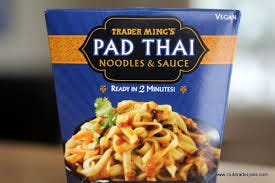Last week’s newsletter was all about dissecting instances of culinary appropriation through recipes and cultural foods. In Part II of this series, I will discuss how identity and cultural foods are intertwined to market food.
CULINARY APPROPRIATION: IDENTITY + FOOD
As we already know I am kinda obsessed with how food relates to our identity. How food memories shape our palates and even how we view the world around us. Our cultural heritage is an identity that is most of the time married to the foods we are raised with. This marriage can be marred with negative associations like when the homemade lunch you brought to school was heavily criticized by your peers or can have positive associations like learning recipes that have been passed down from generation to generation.
There have been a couple of instances of cultural appropriation where people and companies used other cultural identities that were not their own to push products and brands.
Thug Kitchen
For years the supremely popular blog Thug Kitchen has been pumping out recipes promoting vegan cooking with an urban slant on the vernacular it uses. Recipes are peppered with F-bombs and urban language that horribly mimic Black people.
When they dropped their first cookbook in 2014 it was discovered that it was a White couple that was behind the successful blog, which made many accuse the couple of cultural appropriation and digital Black face. Clearly, none of that mattered and the couple continued on their merry way with the blog.
In 2020 when all Hell broke loose in the world and Black Lives Matter protests were shining a light on cultural appropriators across multiple fields + platforms the couple was pressured to re-brand into their new blog Bad Manners. Even though they apologized and re-branded it took them 6 years to care about what they were doing. I say “care” instead of “recognize” because they didn’t care back in 2014 when folks called them out for it and I’m sure they still don’t.
I won’t delve into the specifics of how using urban vernacular to moonlight as a Black person is fucked up or using the word thug in the name of your brand perpetuates the stereotypical image of incarcerated Black men or that Black men are criminals. I think all the folks reading this know why this particular story is awful for Black people. I feel like we’re all on the same page and know what White privilege looks like when we see it so I won’t dig deeper into this topic.
Trader Joe’s
For years I’ve been uncomfortable shopping at Trader Joe’s. The staff is friendly, the prices are great, the food is awesome, but their marketing has ALWAYS made me feel a type of way.
Again, as the fires in Hell were stoked last year Trader Joe’s was next in line for appropriation and under fire for their product names. I was taken aback that it took the world so long to catch up with me, but I was happy to see it was finally happening. Trader Joe’s was accused of naming its products racist names.
Most Asian products were sold under the name Trader Ming, Latin products Trader Jose, and Italian products under the name Trader Giotto. Why in the world they thought this was a good idea I have no clue, but last year they said they would change their product names and then backtracked to say they had no intention of changing them.
As seemingly progressive as Trader Joe’s is, this seemed ass-backward. Why would you not take the high road and change/phase out the packaging of your products? In a world where supermarket grocers think/say stupid shit, I would have thought they would have been less reluctant to change.
What Do We Do Now?
Now, will I go so far as to say that Trader Joe’s is a White Supremacist organization because of their packaging? No. But I will say that they are continuing a legacy of racism in this country with stereotyping/racially profiling people of color by their names. Not every Latino man is named Jose nor every Asian person has “ing” in their names. It’s common sense that hurts.
Appropriation on all levels has ramifications that affect whole communities, real people like you + me. Going forward as a collective I suggest as people of privilege (I include myself in here even though I am a woman of color) we reconcile our choices when engaging or seeing appropriation happen. We can start by speaking up for our friends + neighbors who don’t look like us. We can call out orgs, companies + people in general who are financially benefitting from the work, labor, or efforts of BIPOC without compensating those individuals. We also need to become comfortable with confronting racism.
Confronting racism can be scary at times, but it’s necessary. Think of it as a muscle that you need to exercise. Each time you recognize racism and do or say something about it that muscle becomes stronger and it becomes slightly easier. Cultural appropriation will most likely never really go away because our world is becoming smaller as we become more connected digitally. What we can do to avoid it personally is ask ourselves 3 simple questions:
Is what I’m doing offensive to someone who is from a different race/culture than me?
Am I appropriating or appreciating?
Am I being an ally with what I’m doing?
These questions won’t solve racism overnight, but they are a great place to get started for deep self-reflection.



